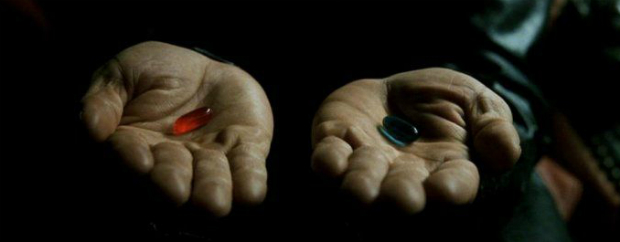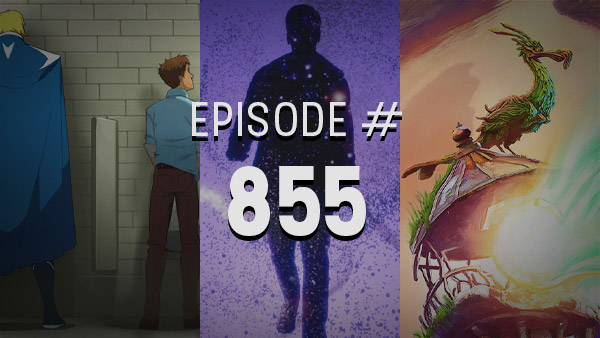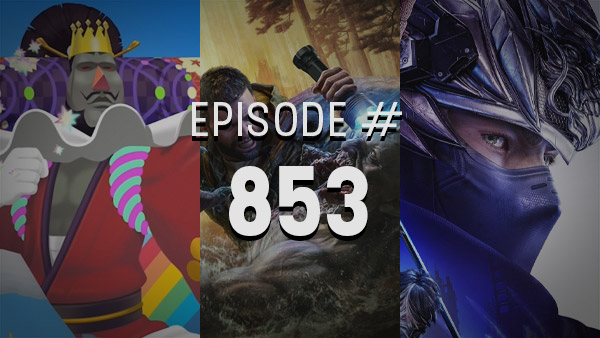Your login information returned multiple users. Please select the user you would like to log in as and re-type in your password.

Illusion of choice has always been an interesting topic of discussion within our community. Whenever it is brought up, there are always those who will wish for complete freedom of choice rather than the "illusion" most games choose to incorporate. That being said, is complete freedom really the right direction for games that emphasize player decisions? Don't get me wrong, a game that gives the player complete control of their character in every aspect would be interesting from a technical standpoint, but would it really be a fun or engaging?
In just about every instance where a game incorporates player choice, the main protagonist is already an established character to some degree. Shepard from Mass Effect, for example, has to be human and comes with a few pre-written background choices. Sure, you get to alter Shepard's appearance and ultimately decide his/her personality quirks and decisions, but there is an already established background for Shepard that other characters will talk about. At that point the game becomes less of a "What would I do in this situation?" and more of a "What would the spacer who sent their unit on a suicide mission do?"
While it would be great for Shepard to be a completely blank slate character, it would be difficult to build a cohesive narrative around that. I mean, with complete player choice, Shepard could just at any point stop and say, "You know what? Screw this. I'm gonna go back to the Citadel and open up a bakery."

So, in a sense, having an illusion of choice is beneficial. It gives the player structure, something to do and strive for. I, honestly, do not feel having a completely open "do whatever you want" game would be successful or even interesting to play. Of course, on the opposite end of the spectrum, some games have too few decisions or throw them in arbitrarily. Games that have decisions such as, "Oh, this person is dangling off a cliff. Do you want to save them or let them fall?" only to have said person fall regardless comes off as lazy. I mean, really, if the outcome is the same no matter what, why bother? Why tease the player with choices that seem meaningful only to rip that control away from them immediately after? It cheapens the experience and any impact the narrative could have had.
It seems there's this thought process that having choice makes a game superior to other games. While a game focused around the illusion of choice and being well execued can be a great experience, it is not a feature necessary to make a game great. Gamers have played games for years that had linear narratives. Does the capability of actual decision making in games mean Final Fantasy or Dishonored are inferior? Certainly not. There will never be anything wrong with linear story telling; developers just need to keep the player interested with well written characters, plotlines, and an interesting environment.

But why can't there be a completely open world game? Why can't you start up a game and decide to be a 2-headed ogre that runs a sex toy shop in some futuristic city on Mars? There will always be some kind of limitation on what the player can do and achieve; mainly determined by the setting of the game itself. If a game takes place in a Medieval Fantasy setting, you can't just decide to be a space Samurai. The game has already confined the player in some way and they must adhere to those limitations. If you're totally okay with the limitations brought on by the setting, then I should address why you can't just run off and do whatever you wish.
The main reason: technical limitations. Making a completely open world game within, say, a modern city would be a nightmare to develop and bug test for. It would be like taking GTA IV and opening up every single buildng you could never go in to. Then you need occupants for those buildings and the added interactivity for every single, solitary item in the game. I mean, think about it. A truly open world GTA would mean letting the player do anything from working up the ladder in a crime syndicate and running the city's underworld....to letting the player run into the home of an old woman, digging up her floor boards, and then hide a dead hooker there. I mean, sure, that sounds amusing, but what development team could possibly account for every single decision a player is going to make?

Going back to Mass Effect, let's say the first game gave the player 12 possible endings that were all sufficiently different from the other. That these developers actually found a way to make decisions connect together and the result would be one of those dozen endings. Well, here comes the problem with that. The modern game industry has a severe case of sequel-itis. Any and every IP that is even somewhat successful must have a sequel and said sequel has to come out no later than 3 years after the previous game so that people don't lose complete interest. Because of this mindset, developers are being pressured more than ever to churn out a series within relatively short development cycles. So now, Bioware's developers have to take those dozen endings for the first game, incorporate them all into the sequel, and, to a certain extent, make 12 different narratives fit into one game. The devs also can't downsize on the amount of outcomes since they'll be pressured by their fans to deliver the same, if not better, experience as the first game. So, you see, having dozens and dozens of choices in a game that all have meaningful impact and shape the overall outcome of a game is just something not possible yet because of time restraints and pressure from publishers and fans.
When handled well, the illusion of choice can really immerse the player into a game, really make them feel attached to the characters and the story. Does this mean every game needs to go that route? No. If a developer decides to add illusion of choice, it should be one of the main focuses of the game and not something that feels tacted on and arbitrary. Both developers and gamers need to understand choice adds to the experience, it shouldn't define it. It would certainly be interesting to one day see a fully open GTA or Elder Scrolls game, but current technology and the attitude the gaming industry has towards sequels just doesn't make that a possibity any time soon.




Comments
13 years ago
Morrowind was the game i felt i had a lot of freedom, i pretty much lived in that world as any other npc, didnt have to do anything for anyone, didnt have to go on sidequest or keep playing the main story. I could spend hours doing stuff that wouldnt change the game a lot, but i felt free. Of course, that was back in the day.
I have never been a fan of the multiple endings route that some developers take on thier games, sure it gives the ilussion of choice, but to me it is not about the ending, its about the small and detailed actions and things that one can do within the world. Mike mentioned on the podcast, that in Fallout 1 you can talk the final villain into killing himself and you could do a knife run. To me, those are the perfect examples of freedom in a game, not necessarily to have everything open from the beginning. But yeah, i can´t deny that a fully open GTA wouldnt be awesome.
13 years ago
"Games that have decisions such as, 'Oh, this person is dangling off a cliff. Do you want to save them or let them fall?' only to have said person fall regardless comes off as lazy."
This killed me in Silent Hill: Downpour, and if I recall correctly the game wrote "decisions" like that more than once. I think you're right that it definitely needs to be handled well - poor writing can easily butcher the illusion of options.
Great article!
13 years ago
Great article I for one approve of the illusion choice since i hate games with multiple endings, particularly when i don't get my desired ending because i forgot to do request z or whatever. I belive the opposite should be the freedom of choice in otherwords something like the elder scroll series (even though I'm not a fan) where you are put into this open world and can essentially do whatever you feel like. There is no pathway a or b since it's simply unnecessary as you can do whatever you want whenever you want and it does effect the elder 'story' or ending in any way.
13 years ago
I am fine with the illusion of choice. Games such as The Walking Dead and Heavy Rain are fantastic when you play through them once, If you play it a second time the illusion is naturally broken.
What I hate about most games with "choices" is how black and white they are. Decision making in real life is not like that. There isn't always a "good" and a "bad" choice. We need more games where we have to think about the consequences of our decisions rather than a meter that tells us how good or evil we are.